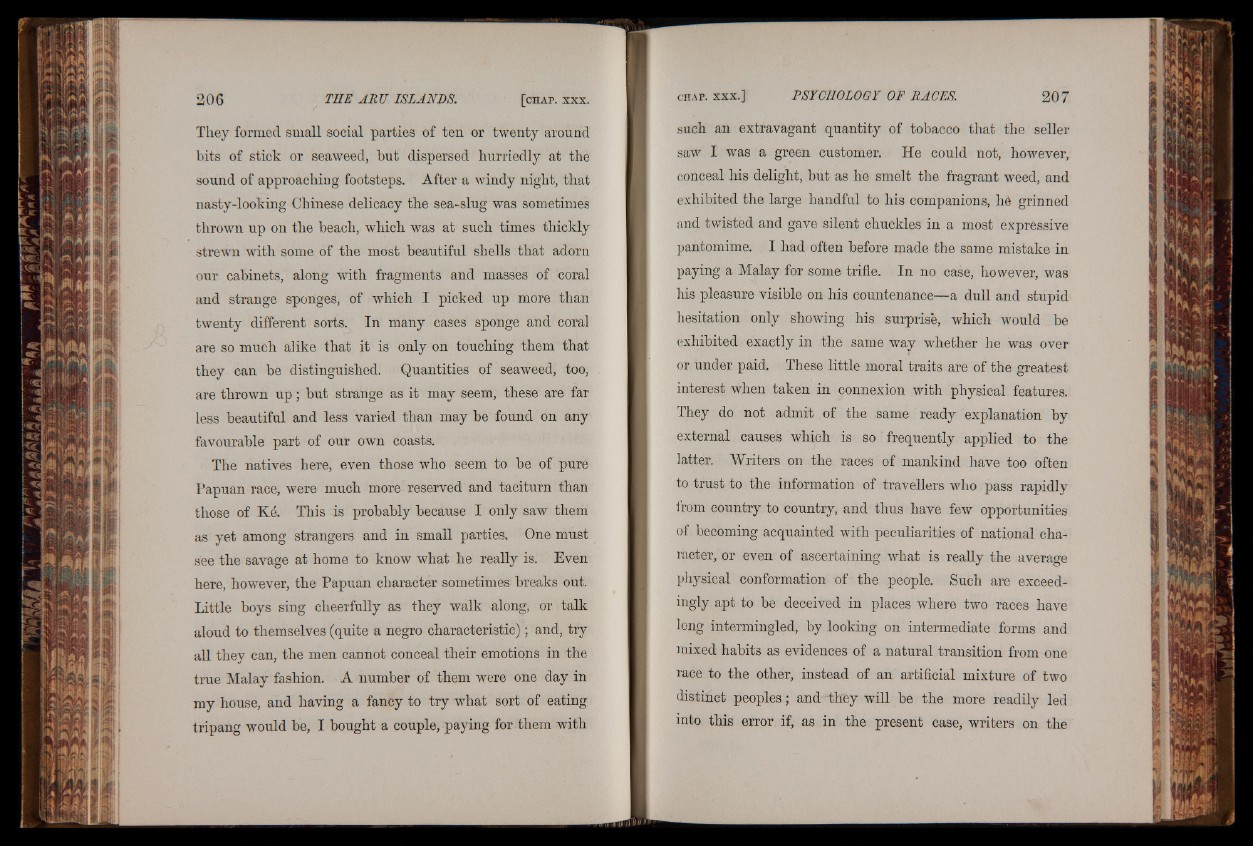
They formed small social parties of ten or twenty around
hits of stick or seaweed, hut dispersed hurriedly at the
sound of approaching footsteps. After a windy night, that
nasty-looking Chinese delicacy the sea-slug was sometimes
thrown up on the beach, which was at such times thickly
strewn with some of the most beautiful shells that adorn
our cabinets, along with fragments and masses of coral
and strange sponges, of which I picked up more than
twenty different sorts. In many cases sponge and coral
are so much alike that it is only on touching them that
they can be distinguished. Quantities of seaweed, too,
are thrown u p ; but strange as it may seem, these are far
less beautiful and less varied than may be found on any
favourable part of our own coasts.
The natives here, even those who seem to be of pure
Papuan race, were much more reserved and taciturn than
those of Ke. This is probably because I only saw them
as yet among strangers and in small parties. One must
see the savage at home to know what he really is. Even
here, however, the Papuan character sometimes breaks out.
Little boys sing cheerfully as they walk along, or talk
aloud to themselves (quite a negro characteristic); and, try
all they can, the men cannot conceal their emotions in the
true Malay fashion. A number of them were one day in
my house, and having a fancy to try what sort of eating
tripang would be, I bought a couple, paying for them with
such an extravagant quantity of tobacco that the seller
saw I was a green customer. He could not, however,
conceal his delight, but as he smelt the fragrant weed, and
exhibited the large handful to his companions, he grinned
and twisted and gave silent chuckles in a most expressive
pantomime. I had often before made the same mistake in
paying a Malay for some trifle. In no case, however, was
his pleasure visible on his countenance—a dull and stupid
hesitation only showing his surprise, which would be
exhibited exactly in the same way whether he was over
or under paid. These little moral traits are of the greatest
interest when taken in connexion with physical features.
They do not admit of the same ready explanation by
external causes which is so frequently applied to the
latter. Writers on the races of mankind have too often
to trust to the information of travellers who pass rapidly
from country to country, and thus have few opportunities
of becoming acquainted with peculiarities of national character,
or even of ascertaining what is really the average
physical conformation of the people. Such are exceedingly
apt to be deceived in places where two races have
long intermingled, by looking on intermediate forms and
mixed habits as evidences of a natural transition from one
race to the other, instead of an artificial mixture of two
distinct peoples; and they will be the more readily led
into this error if, as in the present case, writers on the